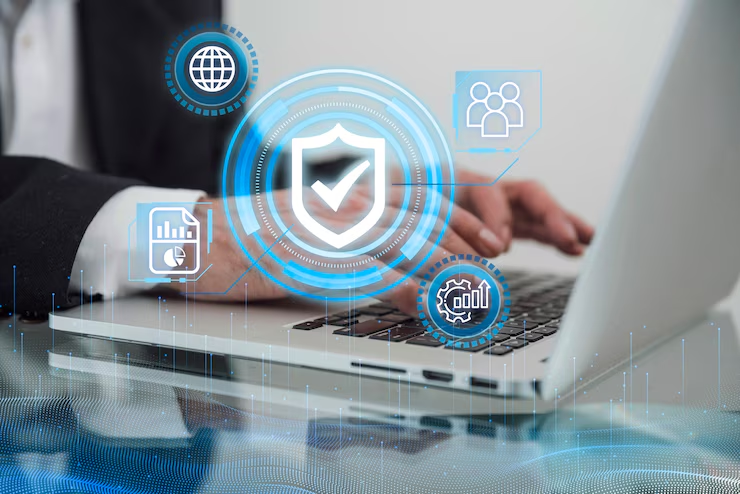
The modern world is increasingly defined by its digital architecture, a complex web of interconnected systems that underpin everything from our daily commutes to global finance. Within this intricate matrix, the concepts of passwords and privacy have taken on renewed significance, evolving from technical requirements to fundamental aspects of personal well-being. This marks a ‘New Aesthetic’ of digital existence, where cyber hygiene is an essential form of self-care.
Just as we attend to our physical health with exercise and nutrition, our digital selves demand consistent attention to maintain security and integrity. Cyber hygiene includes practices and precautions that individuals take to protect their personal information, devices, and online presence from cyber threats. It's about building a robust defence against a constant barrage of attacks. For instance, in 2024, 50% of UK businesses reported experiencing a cyber-attack or security breach, with phishing attempts being the most common vector, affecting 84% of all incidents. These attacks often target individuals through their workplace or personal accounts, leading to significant personal distress and financial loss.

Below are some best practices to maintain cyber hygiene, according to Dipal Dutta, CEO-RedoQ:
At the heart of good cyber hygiene lies the password. Gone are the days when a simple dictionary word sufficed. The rise of sophisticated hacking tools means that weak, reused passwords are an open invitation to cybercriminals. The average cost of a cyber-attack to a UK business in 2024 was £3,230, but for individuals, the impact can be equally devastating, ranging from identity theft and financial fraud to psychological harm and reputational damage. Therefore a proactive approach is desired where unique and complex passwords are set for every online account.
Also watch this video
Don't Miss: 4 Strategies To Combat Evolving Online Threats, As Shared By Cyber Expert
Furthermore, enabling two-factor authentication (2FA) wherever possible adds a crucial layer of security, requiring a second verification method beyond just the password. These measures are like latches on your digital front door. Even if a thief gets through the first lock, they'll be unable to inflict any harm.

Privacy, intricately linked with cyber hygiene, is the ability to control who can access and use your personal information. In an age where our digital footprints are ever-expanding, safeguarding this control is paramount. Regulations like the General Data Protection Regulation (GDPR) in the EU and UK aim to empower individuals with more control over their data. These regulations require organisations to obtain explicit consent for data processing and providing individuals with rights to access, correct, and delete their information. However, legal frameworks are only part of the solution as individual vigilance is equally important. Being mindful of the information we share online, scrutinising privacy settings on social media platforms, and understanding the terms and conditions of apps and services are all crucial components of digital self-preservation.
The "New Aesthetic" in this context refers to the growing awareness of how deeply digital systems are intertwined with our physical lives, and how our digital well-being directly impacts our overall sense of security and peace. It's about recognising the vulnerabilities of our online existence and actively trying to mitigate them. Regularly updating software and operating systems, for example, is critical. These updates frequently contain vital security patches that close loopholes exploited by malicious actors. Neglecting updates is like leaving your windows open during a storm. The WannaCry ransomware attack in 2017, for instance, exploited a vulnerability for which a patch had been available, highlighting the real-world consequences of poor updating habits.
Ultimately, embracing cyber hygiene as a form of self-care means cultivating a mindful and proactive approach to our digital lives. It’s about understanding that our online identities and personal data are valuable assets deserving of protection. Just as we invest time and effort in our physical and mental health, dedicating attention to our cyber well-being is an investment in our peace of mind and security in an increasingly interconnected world.
Credits: freepik
If you liked this story, then please share it. To read more such stories, stay connected to HerZindagi.
Our aim is to provide accurate, safe and expert verified information through our articles and social media handles. The remedies, advice and tips mentioned here are for general information only. Please consult your expert before trying any kind of health, beauty, life hacks or astrology related tips. For any feedback or complaint, contact us at compliant_gro@jagrannewmedia.com.